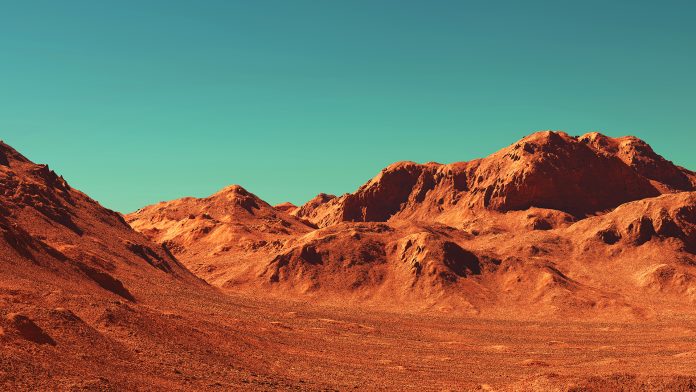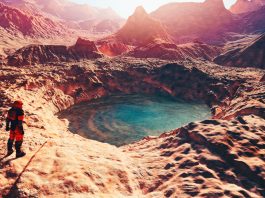Ari Koeppel, a NAU PhD candidate from John Hopkins University, was part of a collaborative team also consisting of Arizona University, who recently discovered that there once was water on Mars in the Arabia Terra.
Arabia Terra
The region showing that there was once water on Mars, is situated in the northern latitudes of the planet, the land covering an area slightly larger than the European continent. It’s described to contain craters, volcanic calderas, canyons, and bands of sedimentary rock, similar to that in the Painted Desert.
More on the Study
The formation of this rock is the focus of this research, as this reveals a better understanding of the past environment on the planet up to four billion years ago, and whether there could have been climatic conditions that were suitable for life on the surface. Looking into these past environmental conditions would also reveal further information, such as the potential presence of stable water, and what the atmosphere and surface temperature might have been like.
In order to gain this information, Koeppel and team focused on thermal inertia, which defines the ability of a material to change temperature. Thus, scientists were able to recognise the difference between sand with its small and loose particles, as it gains and loses heat quickly, while solid boulder will remain warm long after dark. Therefore, to determine the presence of water on Mars, Koeppel and team studied the surface temperatures. This allowed them to determine the physical properties of the rocks, such as whether the material was loose and eroding away when it appeared to be solid.
The results of the thermal inertia gathered from these rocks, was amongst the data collected remotely from the satellites orbiting Mars, as well as the instruments contained within each individual satellite. Combining this information meant that Koeppel and team could consider what the thermal inertia, evidence of erosion, the condition of the craters, what minerals were present, and what it revealed about water on Mars.
What does water on Mars reveal?
It was determined that the deposits studied were less cohesive than everyone previously believed, which indicated that there was water on Mars for only a short period of time. Koeppel has commented that these results have inspired disappointment in some, as a longer presence of water would mean a greater chance of life having been on Mars at one point. However, he stresses how interesting these findings are, as looking into why this water was present in Arabia Terra leads to new routes and different explanations to consider.
What does this mean?
The data collected from this study, combined with the other data on Mars that has been compiled over the past ten years, highlights just how much research into this area has developed. Koeppel states that this is an exciting time for Mars science, as the levels they can study at are now comparable to how we have always been able to study Earth. This means that an explanation about the water on Mars may be provided sooner than originally thought.









